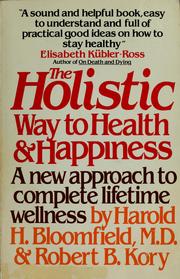 The big month is upon us. That is, the month that people have been exploding to apocalyptic proportions for a very long time--December, 2012. As far I know, the experts have allowed two possibilities for our imminent destinies: Life or Death.
The big month is upon us. That is, the month that people have been exploding to apocalyptic proportions for a very long time--December, 2012. As far I know, the experts have allowed two possibilities for our imminent destinies: Life or Death....hmm. That actually doesn't sound too far-fetched. We either experience worldwide doom, or we keep on living and realize we've been duped yet again. Well, if you look at it this way, I could either keep living today or die today, two trajectories we each face every single day.
So why should 12/21/12 be any different? Why should we be afraid of something we really don't know anything about? Because we need more excitement! An apocalypse should do the trick.
No, seriously, this is ridiculous. And I am content to believe that most of my generation is making fun of this nonsense as much as I am rather than stocking their closets with reserve baggies of weed or Facebook statuses for the coming darkness.
My opinion on the matter is somewhat different than being purely skeptical, however. I think that this global awareness and anxiety about the end of the world could actually be utilized in a positive way, with a mass meditation on global change and personal change. What I mean is that this whole 12/21/12 business could actually be useful. Let me begin by introducing a great book.
Harold H. Bloomfield and Robert B. Kory wrote The Holistic Way to Health and Happiness in 1978. I found this little baby in a thrift store in Iowa, a true treasure. It's a book that addresses in separate chapters every problem one might have with one's health, whether that be depression, insomnia, weight, sex drive, anxiety, smoking & drinking, and spiritual crisis. While each chapter is definitely worth reading and pondering, my favorite advice of the authors is that of The Healing Silence.
Wha...? Huh?
I sense your befuddlement. Here's what the book explains about The Healing Silence: "The easiest way to beginning more inner silence into your life is to close your eyes and relax for ten minutes once or twice a day." Seems simple, doesn't it? That's because it is. Meditation doesn't have to be just for Tibetan monks who are so skilled they can travel outside their bodies to visit their grandmothers in San Francisco for afternoon tea.
Here are the four steps to achieving the Healing Silence (trust me, I've tried this and it's miraculous):
1. Sit comfortably in a quiet room.
2. Close your eyes.
3. Relax your muscles systematically, starting with your feet and working up to your head.
4. Repeat the word "one" (or any simple word or syllable you might choose) to yourself with each exhalation of breath.
Silence is something we dread nowadays, because it usually denotes awkwardness, boredom, or something else negative. The book explains, "Our culture has become dependent on excitement as a primary source of enjoyment [...] Recent research indicates that the addiction to excitement has become so great that some people cannot endure a half-hour of complete silence without becoming edgy or nervous."
Furthermore, the kind of person held in high regard in our society is one who can handle all kinds of stress without breaking down, someone who is on the go all the time, busy and hurried, accomplishing a million things each day without hesitation. That kind of person may seem full of vitality and energy on the outside, but on the inside the stress is causing all manner of damages. The Healing Silence and silence in general is vital to feeling better in almost every way, whether it be about body image, anxiety, or simply boredom and apathy.
Here's my tie-in to the 12/21/12 theme: I urge you to try meditating once a day, for ten minutes. Try it. Afterward, when you have that overall tingly feeling, like you've been asleep but more acutely aware than ever, think about yourself and how you're changing. I think if enough people use our obsession with the Apocalypse to a different end--to start meditating on inner and outer change--maybe a new age will actually hit us, an age where thought and talk on a global scale becomes more important and the collective good becomes the center of our decision-making.
Or, if global change strikes you as too far-fetched, at least try the Healing Silence for your own good, for your own personal struggles. Because even if we only effectively change ourselves and our attitudes about ourselves, a ripple effect is created, and we have changed something.
Get off your computer now, go grab a comfy chair in front of a window, sit there and be quiet for ten minutes. See what changes occur and embrace them.







